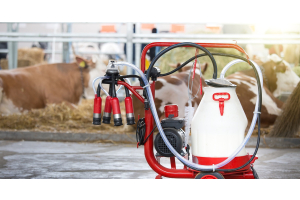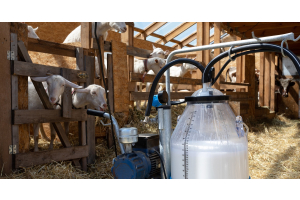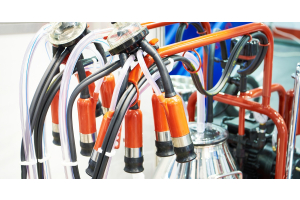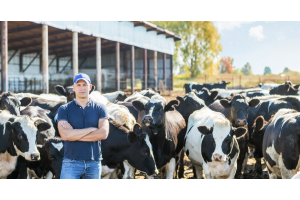Why the Right Milk Hose Is Essential for Efficient Milking
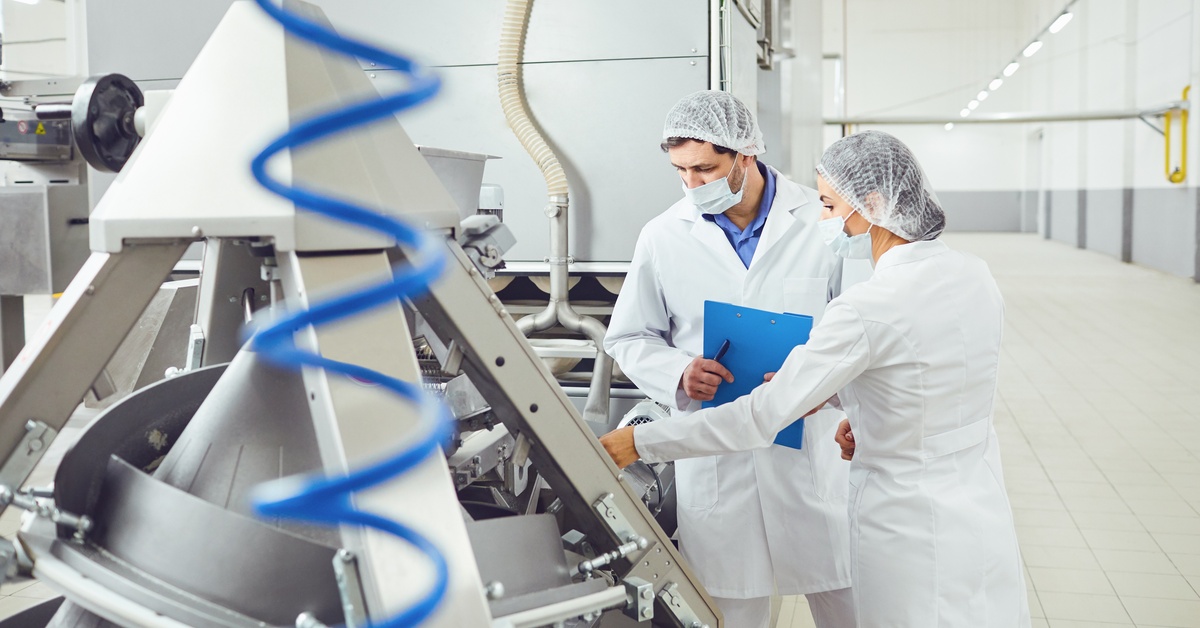
Milking hoses play a crucial role in modern dairy farming, serving as the vital link between the cow and the collection system. These hoses transport milk efficiently and hygienically, ensuring both quality and safety during the milking process.
Whether you’re new to dairy farming or a seasoned professional, understanding and implementing these tools can make a big difference in the efficiency and quality of your operation. In this guide, we’ll explore everything you need to know about milk hoses and why they’re so essential for an efficient milking and milk transfer process.
The Role of Milk Hoses in Dairy Farming
Milk hoses play a crucial role in the milking process by acting as the primary channel for transporting milk from the cow to the collection system. These flexible hoses efficiently carry milk after extracting it, ensuring that it flows smoothly to avoid disruptions or delays in the milking process.
A well-functioning milk hose prevents contamination by maintaining a sealed environment that protects the milk from exposure to external elements or bacteria. Additionally, smooth and consistent flow through the hoses minimizes the risk of spillage, preserving the quality and quantity of the milk your machinery collects. Because milk hoses are a vital component of the overall milking system, the performance of this small piece of equipment directly and significantly impacts the efficiency and hygiene of the operation.
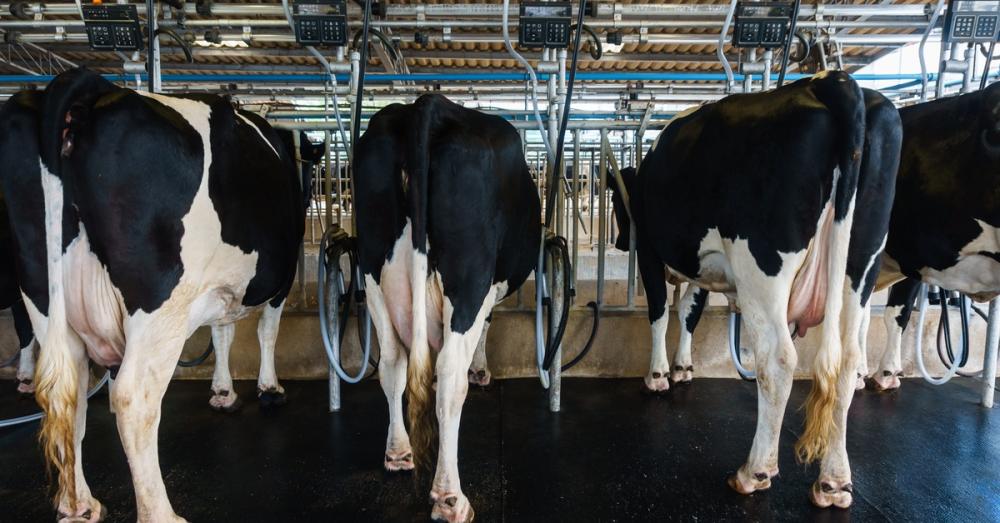
Key Features of an Ideal Milk Hose
Material Quality
The material of the milk hose plays a crucial role in maintaining milk safety. A high-quality milk hose should contain food-grade and non-toxic materials to prevent contamination. These materials should also be able to withstand regular cleaning processes and constant use over time without degrading or leaching harmful substances.
Durability
Durability is essential because milking operations can be particularly demanding on machinery, consisting of continuously rigorous conditions. A durable milk hose resists cracking, breaking, or wear and tear, even with frequent handling and exposure to cleaning agents.
Flexibility and Strength
A great milk hose strikes the right balance between flexibility and strength. It must be flexible enough to prevent kinks that could impede milk flow but strong enough to withstand pressure and avoid punctures or tears. This ensures a smooth operation and uninterrupted milk transfer.
Size and Fit
Proper sizing is another vital factor. You should carefully choose a hose with a diameter that allows optimal milk flow, avoiding any unnecessary restrictions or overflow. Additionally, the milk hose must be a perfect fit for your milking equipment to ensure secure, leak-free connections that support smooth and hygienic operation.
Ease of Cleaning
You should never overlook how easy it is to clean a piece of equipment, and milk hoses can be particularly small and finicky. An ideal milk hose should be easy to flush out to allow thorough cleaning, reducing the chances of bacterial growth and ensuring that milk remains hygienic at all times. Smooth surfaces and materials that are resistant to retaining residues make cleaning more efficient and effective.
Impact of the Right Milk Hose on Efficiency and Milk Quality
Operational Efficiency
Choosing the right milk hose plays a pivotal role in enhancing operational efficiency on a dairy farm. A high-quality hose minimizes downtime caused by common issues like leaks, clogs, or sudden hose failures, ensuring the milking process continues without unnecessary interruptions.
Additionally, the consistent flow of milk speeds up the entire milking process. This saves time and allows farmers to manage their daily operations more effectively, leading to smoother and more productive workflows.
Milk Quality
The quality of a milk hose directly impacts the freshness and safety of the milk you collect. Keep in mind that a clear and smooth interior eliminates the risks of milk contamination that can result from the buildup of residues or the presence of inferior materials. In reducing the potential for introducing contaminants, these hoses maintain the highest standards of milk quality, ensuring the end product is safe and nutritious for consumers.
Cost Savings
Investing in a high-quality milk hose may seem like an extra upfront expense, but it can lead to substantial cost savings over time. Premium hoses require fewer replacements and less frequent maintenance, which translates into lower long-term costs for farmers.
Additionally, using quality hoses ensures compliance with industry standards and food safety regulations, helping dairy farms avoid potential penalties or losses associated with milk quality issues. The combination of longevity, reliability, and compliance makes premium milk hoses a smart financial choice for any dairy operation.
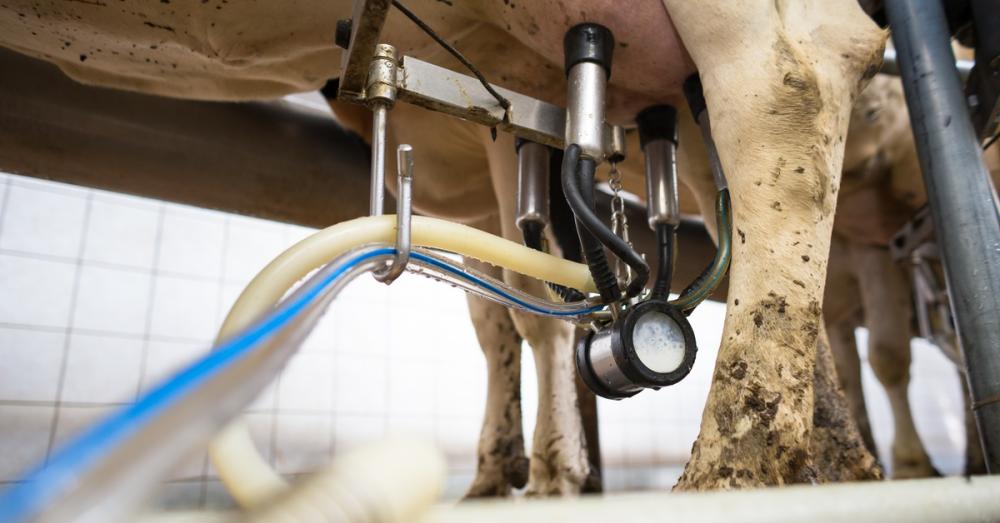
Choosing the Right Milk Hose
Tips for Evaluating Milk Hoses Before Purchase
When selecting the right milk hose, you must consider several factors to ensure both operational efficiency and compliance with industry standards. Start by verifying if the hose meets relevant certifications, such as FDA and EU regulations for food-grade equipment. These certifications guarantee that the hose is safe, durable, and suitable for handling milk without compromising its quality.
You should also assess the reputation of the brand. Trusted manufacturers with a history of producing high-quality dairy equipment often provide reliable products. Reading customer reviews and seeking recommendations from industry peers can identify reputable suppliers.
Understanding the Specific Needs of Your Milking System
Each milking system has unique requirements, and understanding these is critical to choosing the right hose. Factors such as the system’s pressure, temperature ranges, and flow capacity should align with the hose specifications.
Additionally, considering the type of livestock you work with and the scale of your operation can further refine your decision. Tailoring your selection to these specific needs ensures optimal performance and prevents premature wear and tear on the equipment.
Role of Supplier Support in Ensuring Long-Term Performance
A responsive and knowledgeable supplier can play a key role in the long-term success of your milking operation. Choose suppliers who offer excellent customer service, provide detailed product information, and stand behind their products with warranties.
Strong supplier support often includes assistance with installation, troubleshooting, and access to replacement parts, ensuring minimal downtime and peak operational performance. Partnering with a reliable supplier contributes significantly to the longevity and efficiency of your milk hoses.
The milk right hoses play a vital role in ensuring a smooth, efficient, and hygienic milking process. From their role in milk transfer to enhancing overall efficiency, these essential tools are truly invaluable for both small-scale and large-scale dairy farmers.
Whether you’re upgrading your system or just starting out, let us supply you with everything you need from teat to tank. With our particularly comprehensive range of milk transfer hoses, we guarantee you’ll find the perfect fit for your dairy operation.






